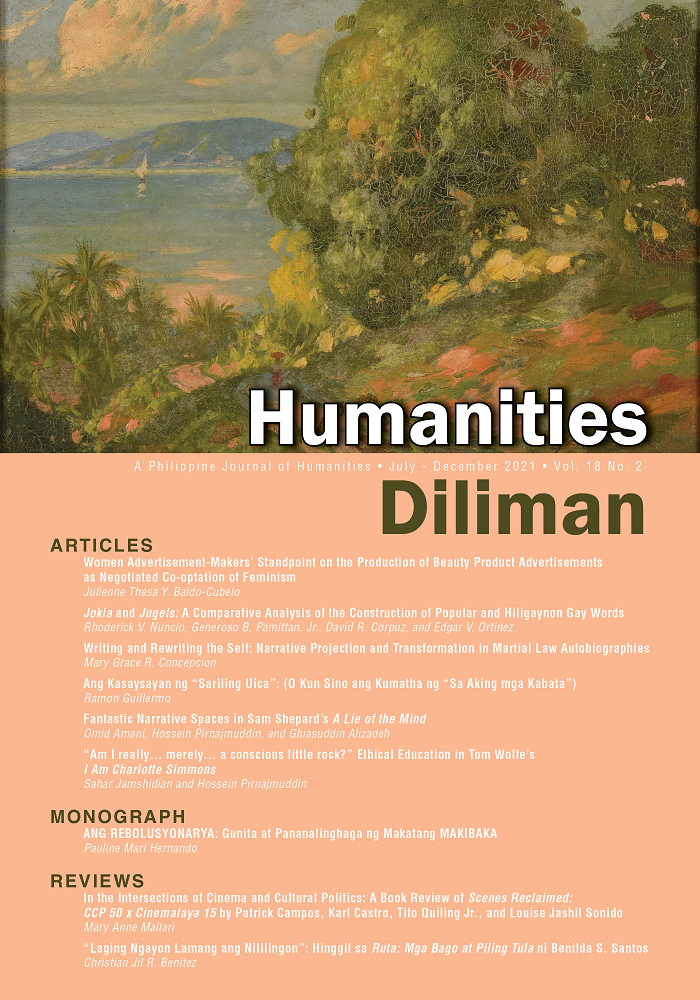Writing and Rewriting the Self: Narrative Projection and Transformation in Martial Law Autobiographies
Abstract
Starting 2000, numerous autobiographical narratives have been published
about life during the Marcos dictatorship (1972–1986). In these texts, the
autobiographers usually record their own transformations, eschewing their
middle-class or privileged backgrounds in order to fight the dictatorship. Jose
Maria Sison, founder of the reestablished Communist Party of the Philippines,
recounts his origins from the landlord class in Ilocos. The Italian priest Peter
Geremia writes about his transition from foreigner to “adopted Filipino” as he
identifies with the struggles of Indigenous peoples and peasants. Danilo Vizmanos
records his defection from the navy to join the mass movement against Marcos.
Going beyond the real-life conversions of these autobiographers, I analyze how
the texts they published after Martial Law project the self. Each author has
written two autobiographies. I examine how the changing discourse affected their
writing of the self. I also investigate how the autobiographical genre projects the
self through the dialogue and exchange in Sison’s interviews, the intimacy and
intensity that was edited out in Geremia’s revised diary, and the personal and
familial life that was recorded more in Vizmanos’s sketches rather than in his
diary. Through this, I also explore each author’s understanding of the genre, and
the ways autobiography could build identities to expose and challenge those in
power.


